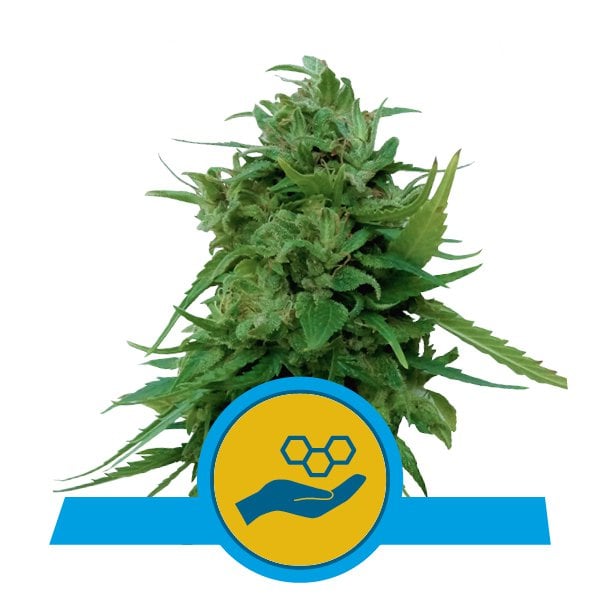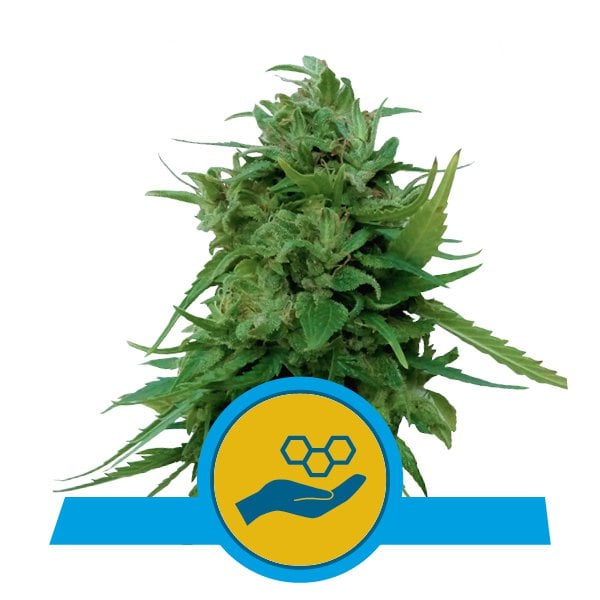.
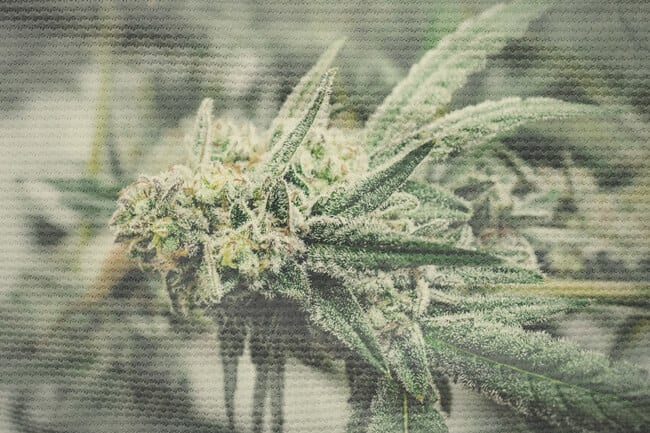
Marijuana Allergy: Identify, Treat, And Prevent Symptoms
If marijuana makes you feel terrible, you could actually be allergic. Here's everything you need to know about cannabis allergies.
Contents:
- What can trigger an allergic reaction?
- Symptoms of a cannabis allergy
- Signs of an anaphylactic reaction
- Risk factors for a cannabis allergy
- Exposure and sensitisation
- Strain and thc content
- Pre-existing allergies and cross-reactivity
- Let's talk about hemp, baby
- A note on mould
- Diagnosing a cannabis allergy
- What to do if you suspect a marijuana allergy
- Prevention and treatment
- The road to relief
Could you have a marijuana allergy? It's not uncommon to cough a little or reach for the eye drops after a few good tokes. But if you find yourself experiencing concerning physical discomfort, it could be down to an allergic reaction.
Cannabis allergies are underdiagnosed, and can even strike experienced smokers who've never had problems in the past. As marijuana becomes more available, people are being exposed to cannabis and its pollen like never before. Cannabis allergies are becoming more common.
But, how can you tell if you have a cannabis allergy? Here's everything you need to know, from symptoms to diagnosis and beyond.
WHAT CAN TRIGGER AN ALLERGIC REACTION?
Allergic reactions to cannabis may mimic seasonal allergies or food intolerances. They can be triggered by:
• Smoking or touching dried flowers, resins, or oils
• Ingesting CBD oil
• Eating edibles
• Exposure to airborne pollen or mould
• Touching dried flowers, resins, or oils + UV light contact (phytophotodermatitis)
We'll get deeper into causes and risk factors soon. For now, let’s go over the telltale signs that you could have a marijuana allergy.
SYMPTOMS OF A CANNABIS ALLERGY
Symptoms of a weed allergy usually present 20–30 minutes after exposure. If you're trying to identify an allergic reaction, keep an eye out for:
• Mainly, red, itchy, or watery eyes.
• Rhinitis, runny nose, or sneezing
• Nasal congestion
• Post-nasal drip
• Productive cough
• Difficulty breathing
• Sore or itchy throat
• Gastric cramping
• Nausea and vomiting
• Itchy skin
• Rashes or swelling under the skin's surface
Keep in mind that symptoms may vary depending on the individual, how and how frequently you came into contact with cannabis, as well as how much cannabis you've consumed. If you experience discomfort after pollen exposure or smoking, you might have symptoms similar to seasonal allergies. Ingesting edibles could result in gastric issues and rashes. Skin reactions can also occur after physically handling the plant.

SIGNS OF AN ANAPHYLACTIC REACTION
While more serious reactions are rare, severe cannabis allergies can result in anaphylaxis. Symptoms of anaphylaxis are sudden, appearing within a few minutes of exposure. The resulting chain reaction can throw the body into a state of shock. Anaphylactic shock is life-threatening, and requires immediate treatment with a shot of adrenaline (like an EpiPen) and steroids.
If you experience or witness the signs of an anaphylactic reaction, seek emergency medical attention. Signs include:
• Hives, itching, reddening, and swelling of the skin
• Shortness of breath, wheezing, respiratory distress
• Vomiting, abdominal cramps
• A weak, rapid pulse
• Reduced blood pressure, dizziness, fainting
RISK FACTORS FOR A CANNABIS ALLERGY
Cannabis allergies can strike in different ways, even affecting those who have never been allergic. Narrowing down the exact cause of an allergic reaction may take some sleuthing, but it helps to be aware of risk factors.
How much cannabis you consume, whether you have other pre-existing allergies, and your proximity to grow operations can all affect how likely you are to develop a marijuana allergy.
EXPOSURE AND SENSITISATION
Sensitisation is when your body develops an allergy following repeated exposure. If you live in an area where the plant is cultivated, you could be at greater risk for developing allergic reactions. While pollen is typically produced by male plants, female plants with hermaphroditic male flowers can also spread particles through the air.
Tragically, sensitisation may also be linked to cannabis consumption—in any form—or even simply linked to touching the plant’s leaves. In one Spanish study, researchers administered cannabis skin-prick tests to patients in an allergy clinic. They found that marijuana smokers, on average, reacted more frequently compared to non-smokers. The reaction was even more prevalent in those who reported frequent consumption.
As laws begin to relax around cannabis, large-scale cultivation and easier access means heightened exposure to potential allergens. On the flipside, increased awareness and new research into marijuana allergy treatment and prevention can't be far behind.
STRAIN AND THC CONTENT
A case report from the 1970s[1] indicates that, for one individual, THC itself could be the problem. Over the decades, cannabis plants have been bred to contain more and more THC. Whether this could potentially be linked to cases of cannabis allergy is deserving of further study. Moreover, a 2021[2] case report on a man with a local allergic reaction to cannabis suggests that sativa-dominant strains are more prone to causing an allergic reaction in the individual than indica. However, this is not necessarily indicative of a broader pattern, and the study authors themselves say that such results are inconsistent with the individual's past allergic reactions.
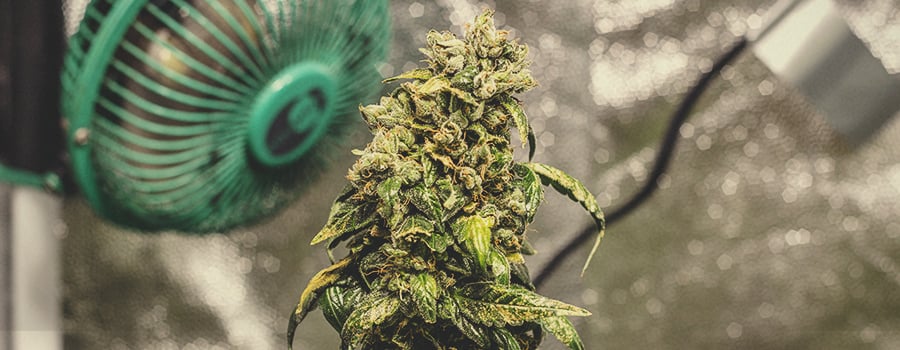
| Solomatic CBD | |
| Diesel CBD x Asia CBD Auto | |
| 425 - 475 g/m2 | |
| 90 - 120 cm | |
| 7 - 8 weeks | |
| THC: 1% (aprox.) / CBD: 21% | |
| 20% Sativa, 70% Indica, 10% Ruderalis | |
| 110 - 150 g/per plant (dried) | |
| 110 - 150 cm | |
| 9-10 weeks after planting | |
| Soft, Clean and very light |
Solomatic CBD
| Diesel CBD x Asia CBD Auto | |
| 425 - 475 g/m2 | |
| 90 - 120 cm | |
| 7 - 8 weeks | |
| THC: 1% (aprox.) / CBD: 21% |
| 20% Sativa, 70% Indica, 10% Ruderalis | |
| 110 - 150 g/per plant (dried) | |
| 110 - 150 cm | |
| 9-10 weeks after planting | |
| Soft, Clean and very light |
PRE-EXISTING ALLERGIES AND CROSS-REACTIVITY
A 2018 study suggests people with allergies to cat dander, mould, dust-mites, or other plants may be more likely to have a cannabis allergy. This study was small-scale and more research is needed to confirm the results; however, if you have any of the allergies mentioned, it's worth keeping in mind.
Along similar lines, allergies to certain foods can make your cannabis allergy more severe. This specifically applies to foods or substances with similar protein properties to cannabis. They are "cross-reactive" with cannabis and can trigger what's called cannabis-fruit-vegetable syndrome. Examples of foods that could be cross-reactive with cannabis are:
• Tomatoes
• Apples
• Bananas
• Peaches
• Eggplant
• Almonds
• Chestnuts
• Citrus
LET'S TALK ABOUT HEMP, BABY
We've talked a lot about cannabis allergies, but not all cannabis plants are created equal. Don't forget that hemp is also a variety of cannabis, albeit a non-psychoactive one. CBD oil and CBD products in general have skyrocketed in popularity in recent years. Most CBD oil is derived from industrial hemp, and it's possible to be allergic to CBD oil, just as it's possible to be allergic to psychoactive cannabis.
On the one hand, if someone is confirmed to be allergic to THC, they might fare better with isolated CBD products. On the other hand, pollen allergies or other triggers can still affect you even if you're not getting high. If you use CBD and notice any of the symptoms listed at the top of this article, your favourite CBD oils, topicals, vapes, or supplements could be the culprit. In case of previous allergic experience, the more secure option is to avoid contact with any product related to the probable allergen until you consult your doctor.
Hemp seeds are also found in a variety of food and drinks, so if you're allergic to hemp, you may be ingesting it inadvertently. If in any situation you suspect a hemp allergy, first check the ingredients of any food items you want to buy.
Products that are otherwise hemp-free can also be cross-contaminated if they're manufactured in the same facility as products that contain hemp. In many countries, this will be noted on the packaging under the ingredients list (for example, "may contain hemp, dairy, nuts, etc…").
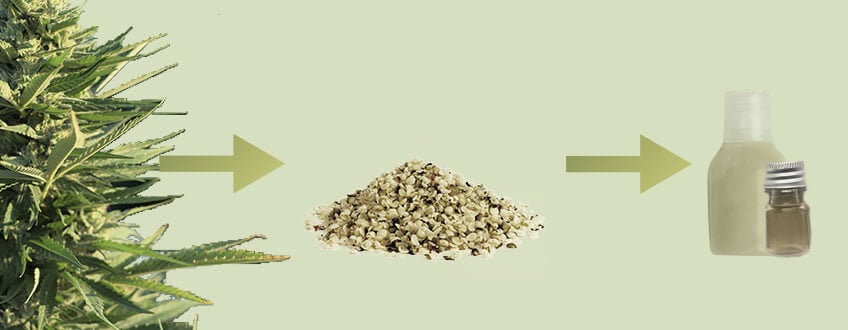
A NOTE ON MOULD
While the cannabis plant itself can cause allergic reactions, there is another possibility: mould. Phytophagous moulds also thrive in humid environments, and can ruin weed that isn't cured or stored properly.
To rule out this possibility and protect your health, store your buds for longevity in a dry, dark, cool place. It's worth it to pick up a proper storage container, like this curing pocket box (or a larger stash saver).
If you're a grower, learn how to identify, treat, and prevent mould. Even if you're just an occasional toker, check your buds. A suspicious white fuzz or gym locker scent means you're in trouble and should dump your stash. And why are we speaking about mould? Because this kind of phytophagous fungi can also induce allergic reactions. Hence, some allergies could be misidentified as a cannabis-triggered allergy, when the mould itself—not the herb—is the culprit.
DIAGNOSING A CANNABIS ALLERGY
So, how do you tell for sure if you're allergic to weed? It's a bit tricky, because there's currently no standard testing method for a cannabis allergy. To determine a diagnosis, your doctor might ask for a detailed history. You may need to keep a journal tracking your symptoms and consumption habits to determine a pattern.
If a cannabis allergy is strongly suspected, your doctor could administer a skin prick test. This involves applying a diluted cannabis solution to your skin with a needle. If you develop a rash in the area, it's a sign that you have an allergy. However, skin prick tests aren't always accurate. You might need more than one, and they can require specialist knowledge to administer and interpret properly.
Blood tests could be another option, however this practice is much less common. Cannabis remains illegal in many places, and awareness of cannabis allergies is still developing. If you see a family or clinic doctor, they'll diagnose you on the basis of a pattern in your symptoms. However, if you are looking for a more accurate diagnosis, you may want to visit the proper specialist: an allergist.
WHAT TO DO IF YOU SUSPECT A MARIJUANA ALLERGY
Start by paying close attention to your reactions. If you suspect a cannabis allergy, you can be proactive while you seek a diagnosis. Keep a diary. Track your symptoms, their severity, and context. Did you recently smoke or otherwise come into contact with cannabis? Have you taken cannabis recently _without_ a reaction? Did you eat or drink anything before reacting, or is there anything else that might have caused your symptoms? If you stop consuming cannabis, do your symptoms go away?
It can seem like a pain, but being as detailed as possible will help get to the bottom of your discomfort. You may even gain some clarity yourself, helping you better adapt while you pursue medical advice. Of course, if it becomes clear that cannabis is the culprit, or if you're having a more severe reaction, stay away from weed until you can see a doctor. If you're unsure, always seek help from a medical professional.
PREVENTION AND TREATMENT
Reducing or eliminating exposure is the only trusted way to prevent or treat a cannabis allergy. If you work in the industry, especially on the processing side, make sure your employer provides you with gloves, masks, and other safety equipment.
Certain symptoms of a cannabis pollen allergy can also be treated with antihistamines and nasal decongestants. However, if you're a consumer of cannabis and having allergic reactions, it might be time to go weed-free. Remember, you should always seek medical attention for severe reactions. If you have a serious allergy, you may need to carry an EpiPen in case of emergency.
On a positive note, as awareness of cannabis allergies grows among the medical community, we may see more treatment options in the future. Research suggests immunotherapy is a potential treatment avenue. Allergen immunotherapy is when a doctor guides your exposure to larger and larger amounts of an allergen in order to retrain your immune response. A recent literature review found studies as far back as the 1930s where immunotherapy was successful in treating cannabis allergies. Unfortunately, they were few and far between, so more research is needed before this becomes standard practice.
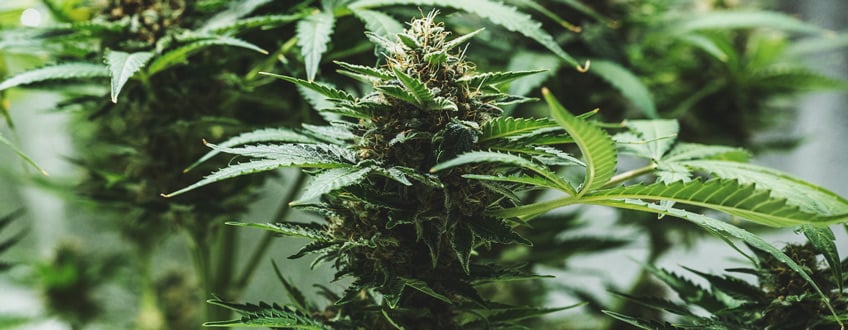
THE ROAD TO RELIEF
If you have a marijuana allergy, the first step toward relief is identifying the problem. While treatment options are currently limited, awareness of cannabis allergies is growing. You can help spread the word by sharing this article and other relevant information. If you suspect you have an allergy, consider printing off some of the scientific studies we've referenced to show your doctor.
As awareness of weed allergies grows in the medical community, here's hoping they will one day be a thing of the past. In the meantime, we'll continue to dream of a glorious world where we can all puff-puff-pass to our heart's content.
- https://www.acpjournals.org/doi/10.7326/0003-4819-75-4-571?doi=10.7326%2F0003-4819-75-4-571
- Selective cannabis strain allergy in a patient presenting with a local allergic reaction | Allergy, Asthma & Clinical Immunology | Full Text https://aacijournal.biomedcentral.com


























